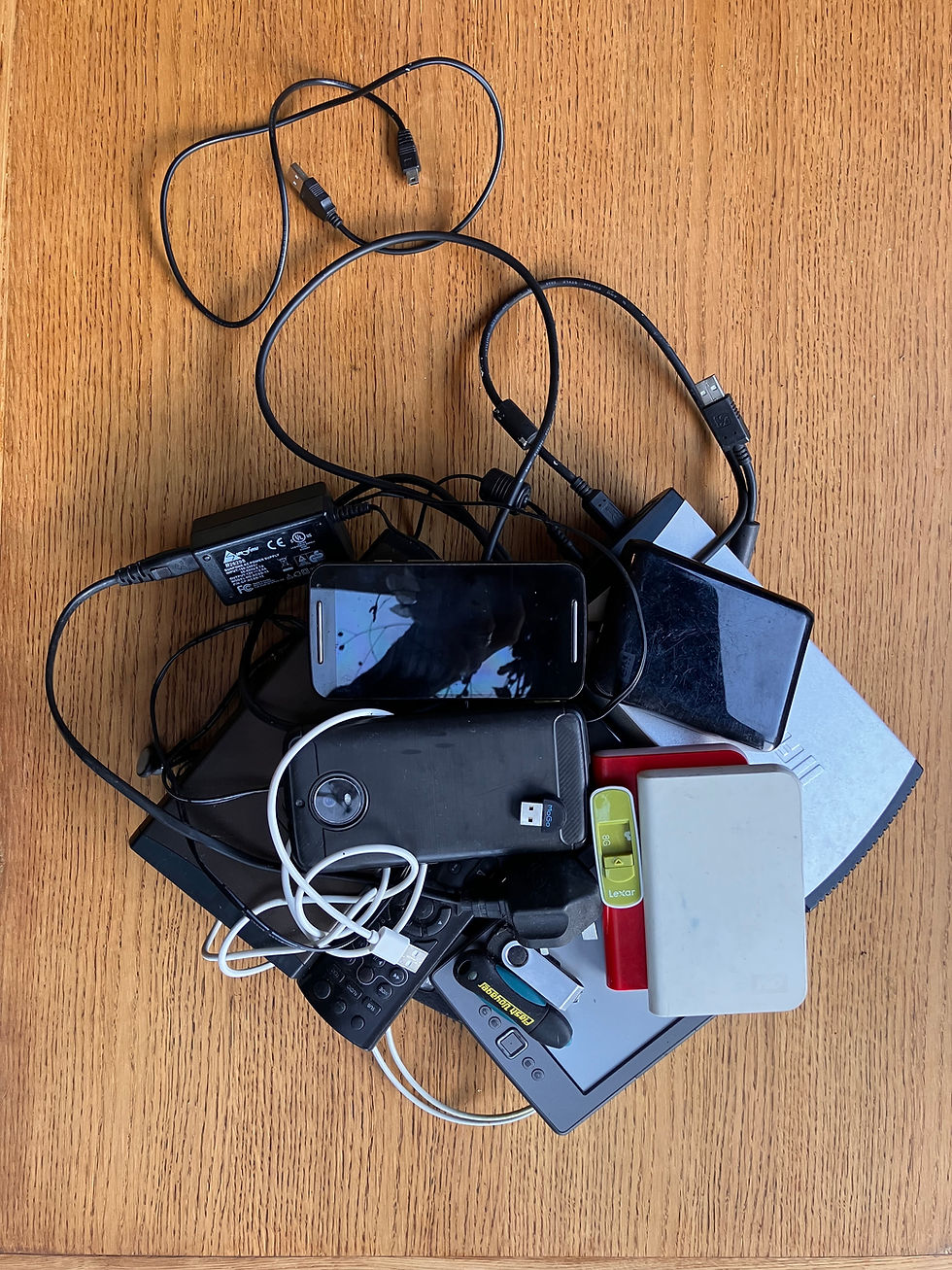Are UK Supermarkets Really Recycling Soft Plastics?
- Jules Miller
- Jul 14, 2025
- 4 min read

Soft plastic is one of the trickiest types of household waste to recycle, but many UK supermarkets now claim to have a solution.
Tesco, Sainsbury’s, Co-op, Aldi, and others have introduced soft plastic recycling drop-off points across thousands of stores.
These schemes let customers return items like bread bags, crisp packets, and fruit and vegetable packaging - materials that local councils rarely accept in kerbside bins.
On the surface, it’s a positive step. But a recent investigation raises serious concerns about whether this plastic is actually being recycled, or if supermarkets are just passing the problem on.
What Counts as Soft Plastic?
Soft plastics include flexible packaging that doesn’t hold its shape and is usually not recyclable at home. Supermarkets typically accept:
Bread bags
Pasta and rice packaging
Crisp and snack packets
Frozen food bags
Plastic film from multipacks
These materials account for about 20% of all grocery packaging waste in the UK yet the country lacks the infrastructure to recycle most of it properly.
What Happens to Your Soft Plastics After Drop-Off?

To find out, environmental groups Everyday Plastic and the Environmental Investigation Agency (EIA UK) conducted a tracking experiment. They placed Apple tracking devices inside 40 bundles of soft plastic waste, then dropped them off at Tesco and Sainsbury’s recycling points.
The results were eye-opening:
The bundles travelled over 25,000 kilometres, often across borders.
70% were incinerated to produce energy - meaning they were burned, not recycled.
Only one bundle was actually recycled in the UK.
The rest were exported to countries like Turkey, Malaysia, and Poland.
The study exposed a wide gap between what shoppers are told and what actually happens to their waste.
Is It Greenwashing?
These findings raise a tough question: are supermarket recycling schemes more about appearance than impact?
Environmental experts think so. Dr. Elizabeth Warren, who worked on the investigation, said the difference between marketing and reality is “deeply concerning.”
Most of the waste is not being turned into new packaging, it’s either burned or shipped abroad, often with limited oversight. That’s not what most people think of when they hear the word “recycling.”
Why the System Is Struggling
The UK’s recycling infrastructure just isn’t equipped to handle the volume of soft plastic waste. Most facilities can't process it effectively, and those that can are limited in scale.
As a result, waste gets exported or incinerated. Both options carry environmental costs: burning plastic releases greenhouse gases and exporting it can lead to poor handling in countries already overwhelmed by imported waste.
Supermarkets are beginning to respond to the criticism. Here's what Tesco and Sainsbury’s say they’re doing:
Tesco:
Removing unnecessary plastic packaging
Developing better domestic recycling systems
Educating customers on what’s recyclable
Sainsbury’s:
Investing in recyclable packaging materials
Reducing overall plastic usage
Reassessing the sustainability of current packaging
Both admit that more robust infrastructure is needed if their recycling efforts are to be genuinely effective.
Can We Trust Recycling Claims?

A growing number of consumers are feeling misled.
A recent survey found that 30% of shoppers feel deceived by recycling claims made by brands and retailers.
Soft plastic recycling labels often imply that packaging is “recyclable”, but if there's no system to process it, can that really be true?
Legal experts, including those at ClientEarth, are now calling for tougher rules.
They want:
Stronger oversight of environmental claims
Mandatory transparency about where waste goes
Clearer labelling on packaging
The upcoming UN Global Plastics Treaty could push for some of these changes, setting stricter international standards for plastic use and disposal.
So, What Should You Do?
Soft plastic recycling at supermarkets isn’t a scam, but it’s far from perfect. Until the UK builds better recycling systems, a large portion of this waste will continue to be incinerated or shipped overseas.
As a consumer, here’s how you can help:
Reduce: Choose products with minimal or no plastic packaging.
Reuse: Repurpose bags and wrappers where possible.
Read labels critically - just because it says "recyclable" doesn’t mean it gets recycled.
Speak up: Demand more transparency from supermarkets and brands.
Final Thoughts
Soft plastic is a growing environmental issue and current supermarket schemes, while well-intentioned, are not solving the problem. The vast majority of collected waste is still being burned or exported.
For real change, supermarkets must invest in better infrastructure and be honest about what happens after collection. And as consumers, we must hold them to account while reducing our reliance on single-use plastic altogether.
The plastic crisis won’t be solved at drop-off points alone - it requires systemic change from top to bottom.
Next Steps
If you want to add your name to the Greenpeace petition urging the UK government to push for a Global Plastics Treaty that reduces plastic production you can do that here - https://act.gp/4jARp3u
Surfers Against Sewage have launched a People Against Plastic campaign that you can join. More details here - https://www.sas.org.uk/plastic-pollution/our-plastic-pollution-campaigns/
Find out more about the Global Plastics Treaty here - https://www.worldwildlife.org/pages/global-plastics-treaty










